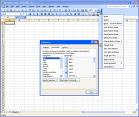
First, you may be wondering just what a computer virus is. Basically a computer virus is one of many types of small programs that install themselves on your computer without your consent. Usually they enter your program through an email, or while you are browsing a website.
When these programs run, usually without you knowing, they can cause all types of problems with your computer. Some viruses can be mildly annoying, slowing down your computer as they use your computer’s resources for another purpose. Others can be very dangerous, collecting your personal information and sending it to another party, or damaging your hard-drive.
True to their name, viruses are able to use your internet connection and email program and send themselves to the computers of other people you know, spreading themselves just like a contagious disease.
Because of this, just like the health of your body, when it comes to computer viruses, an ounce of prevention is worth a pound of cure. It is much easier to prevent viruses from entering your computer than it is to get rid of them and cure your computer once it becomes infected. This is why Anti-Virus software is important.
Once you realize that you need anti-virus software installed and running on your computer, you’ll have to choose which one to purchase and install. This can be a complicated process, but here are some tips to make it a bit easier.
First, check your computer to see if it came with anti-virus software. Many new computers are shipped with anti-virus programs already to go on them, you just need to turn them on. Check your instruction manual to see if this is the case with your computer.
Check with the vendor. If you purchased your computer from a local retailer, check with them to see what anti-virus program they recommend. They should be more than willing to help you and may even be able to provide you with a discount since you purchased a computer from them.
Once you have your anti-virus installed and running on your computer, be sure to contact the software’s support if you have any questions. It is also important to keep your software updated. Many of these programs will automatically update themselves when you are online. This is very important since new viruses are always appearing and you want to make sure your computer is protected.
About the author:
Angie Noack is a business strategist with a sharp edge for technology. With her unique ability to combine these two skills, she's able to help businesses save time and increase profits. You can find her online at http://softwaresoftwaresystems.com















